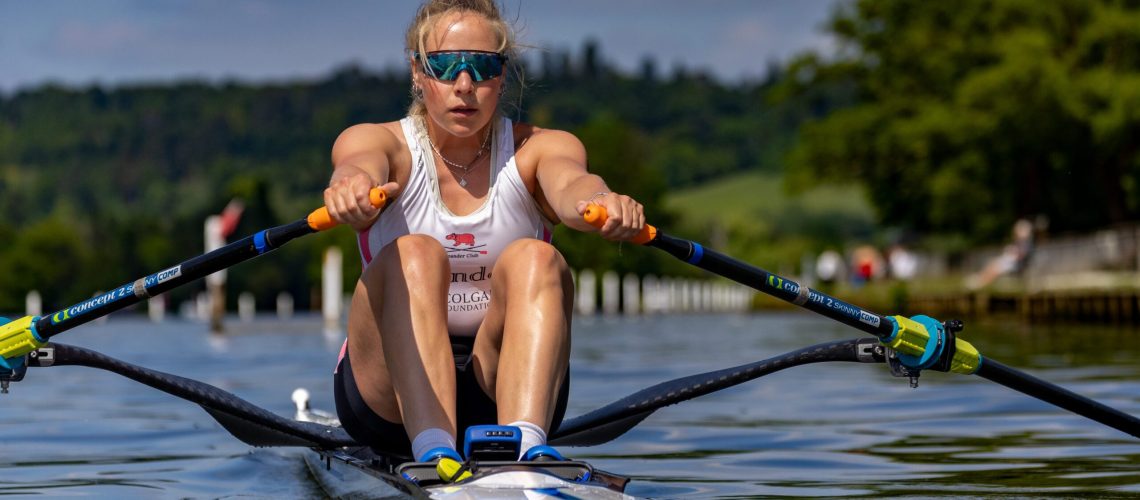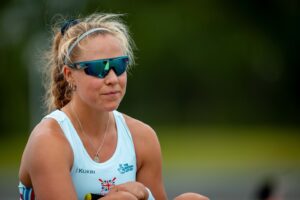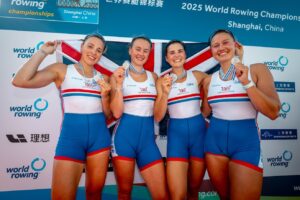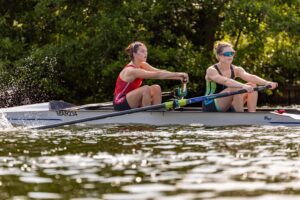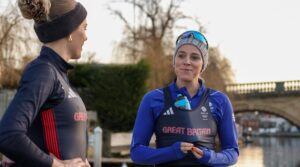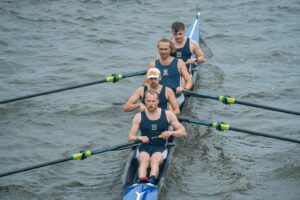Image Credit: Benedict Tufnell / Ed Evans
When reflecting on the 2025 season, it can only be viewed as the beginning of a new chapter. A new and different chapter to those that have gone before.
A few months ago, I wrote: “My Olympic year can only be compared to a rollercoaster. This season has been a hike, slower-paced with some peaks and many troughs.” That was true all the way to the end.
The first year of the Olympiad differed significantly from the previous year. The intensity had dimmed, the clock was not ticking so loudly, and there was time to breathe. With it being the first year of the Olympic cycle, the pressure was off in some respects; there was time to fix problems and set ourselves up for the next few years. This shifted the mindset somewhat; the aim was still to win medals, but the importance was placed on long-term outcomes for the rest of the Olympiad.
This is perhaps why many of us who returned to the team after Paris had such a tumultuous year. There were injuries to fix, illnesses to conquer and emotions to come to terms with. I was only on the team for a short time during the last Olympic cycle, yet I had to sort out all the above, never mind those who had been there for years longer.
I’ve spoken previously about the Olympic comedown, and when returning to full-time training, it became clear that the main obstacle to avoid was burnout. I had four years to better my Olympic result and couldn’t switch straight back into the mindset that delivered that bronze medal. The last campaign was a matter of months; this one would be measured in years and would require a more sustained energy. The team’s focus had shifted to the World Rowing Championships in Shanghai at the end of September, but even that felt distant.
I consciously made decisions in the run-up to Christmas that would sustain my love for the sport in different ways. Making the most of any opportunity that came my way in the post-Olympic furore, I travelled the country, attended any event I could, and soaked in every last drop. Whilst it was probably one of the few times in my career when I sacrificed recovery, I regret none of it; some of these opportunities were once-in-a-lifetime. Alongside this, I chose to return to the club that intensified my love for the sport and feels like home: Leander. The supportive and refreshing environment was a welcome change, making me a happier and healthier individual and athlete.
Come January, I was ready to step back into the team with the right mindset. My goal was now clear: to win the World Rowing Championships.
Then came the injuries.
Whilst my hip and forearm operations have gained media attention, it’s rib stresses that have plagued me the most throughout my career. I’ve had one or more almost every season of my career, with three this year alone. It was time to face the reasons for this head-on. The list is long and complicated, and something for a future article, but long-term health issues have taken their toll, and the wear on my body has been profound. This season, it was about prioritising recovery and fuelling for both prevention and cure.
I sat on the bike for two months (January to March) and again in June. I’m no stranger to Concept2 ergbikes, and often pride myself in coming off them fitter than before. However, this year, perhaps what I am most proud of is the realisation of how fast the body heals if you allow it to. Rest is sometimes best.
And so to the summer and the fun part of the season: the quad. A new project, a bigger boat and a different challenge.
The racing block was turbulent, as we competed at the European Rowing Championships before injury and illness took us out of the World Rowing Cups and Henley Royal Regatta. It’s this part of the season I love the most, and it’s the thought of racing that gets me through the dark winter months. The pain of missing out this year cut deep.
We were fortunate in some respects that the World Rowing Championships were so late this year. It meant that after crew selection, we had two months to make up for the missed water time, with a solid training block ahead of us to gel as a crew and find our speed. Of course, there were challenges along the way, and lessons had to be learned quickly, but I knew from experience just how much speed a crew can achieve in a matter of weeks.
A bigger boat makes this a whole lot trickier, as I came to realise. Four people with different bodies, experiences and opinions were a lot to consider, with a coach’s voice on top of that. Ultimately, time ran out, and we were still learning in the days leading up to our World Rowing Championship final, not refining.
Shanghai was an adventure. A completely unique and different place from anywhere I had previously travelled to, let alone competed at before. The cultural differences were fascinating, and the sheer size of the population there was incomprehensible. Out on the lake, the conditions were unlike anything we had ever experienced, with the heat and humidity posing an intensely challenging environment. It’s an event that will live long in the memory.
It’s no secret we wanted to return home with a gold medal, and sitting on that start line, we believed it was possible. The Dutch were brilliant from the start and deserved their victory; it wasn’t our race, but we gave it the best we could. It’s a medal we can be proud of, but silver leaves a funny taste in your mouth… whilst a medal on the world stage can never be taken for granted, you cannot help but look on in envy at the gold. We’re hungry for more, but it summarised the season perfectly: a silver lining.
So, what next? As we start the 2025-2026 season, the goal stays the same: to be the best in the world. Time flies, and before we know it, the LA Olympic Games will be just around the corner. This is another year to build towards it, to keep learning from triumphs and failures, adding more work to the bank.
Time to get back to the grind. I’m sure this season will add a few more pages to this chapter.

